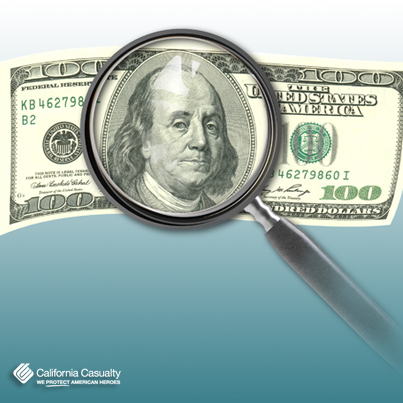Do you know anyone, other than an accountant, who really enjoys filing their tax returns? As if it isn’t stressful enough assembling all the documents, trying to decipher the forms and double checking the math, there is a new concern – tax fraud and identity theft. The IRS has noted a 400 percent surge in phishing and malware incidents this year, and the Treasury Inspector General estimates fraudulent returns will add up to $21 billion dollars in 2016.
Once again the IRS is warning that thousands of us are at risk. Most won’t find out until they file their taxes and get notified that someone has already used their Social Security number to claim a false refund. This will result in all kinds of headaches and delay their legitimate return.
Here are the top three of the IRS’s “Dirty Dozen” list of tax scams:
- Aggressive phone callers saying they are from the IRS threatening immediate arrest, deportation or license revocation unless you settle an outstanding balance via wire transfer or preloaded debit card
- Fake emails purporting to be from the IRS (or TurboTax) asking for “missing” personal information to secure your refund, or directing you to links that contain malware
- Fraudulent tax return preparers who use your personal information to perpetrate refund fraud, identity theft and other scams
To battle the problem, the IRS has published these tax-time security tips:
- Keep computers protected with strong passwords and strong virus/malware protection
- Avoid phishing scams: don’t respond to emails, tweets or phone calls asking for personal information or payment – the agency never initiates contact via phone, email, text or electronic media
- Don’t open attachments in emails unless you’re sure who sent it and why
- File returns early and do so electronically
- Choose your tax preparer carefully and ask if they have an IRS Preparer Tax Identification Number
- Never carry your Social Security card in your purse or wallet
If you receive a suspicious email message, the IRS asks that you forward it to them at [email protected]. They ask that you report IRS-impersonation calls at www.tigta.gov
While the IRS has instituted new programs and resources to try and prevent tax ID theft, they warn that crooks continue to find new, more sophisticated ways to capitalize on our money. That’s why they have a comprehensive list of information about tax-time identity theft and helpful links at https://www.irs.gov/uac/Identity-Protection.
These are signs that you could be a victim of tax-related identity theft:
- More than one tax return was filed using your SSN
- You are notified you owe additional tax, have a refund offset or had collection actions taken against you for a year you did not file a tax return
- IRS records indicate you received wages or other income from an employer you never worked for
And, if it happens to you it can be costly in both time and money. A Bureau of Justice Statistics survey found the average loss per ID theft victim was $1,343, and most spent at least a full day to clear up the issue, however some didn’t see a resolution for months.
Nobody has time for that. That’s why California Casualty provides free ID theft protection with every auto and home insurance policy. Through our partners at IDT911, not only is your identity and personal information protected, but you’ll work with a resolution specialist in case of:
- Tax Fraud
- Social Media Compromise
- Email Compromise
- Child Identity Theft
- Break-in Recovery
- Travel Identity Theft
- Much More
Contact a California Casualty advisor today for a free auto and home insurance policy review and learn about our free ID theft protection at 1.800.800.9410 or visit www.calcas.com/identity-theft.
Sources for this article:
https://www.irs.gov/pub/irs-pdf/p4524.pdf
https://www.irs.gov/uac/Newsroom/IRS-Wraps-Up-the-Dirty-Dozen-List-of-Tax-Scams-for-2016
https://www.consumer.ftc.gov/articles/0008-tax-related-identity-theft
https://www.bjs.gov/content/pub/pdf/vit14.pdf
- California Casualty Earns Financial Stability Rating® of A, Exceptional, From Demotech, Inc. - April 28, 2025
- Music & Arts Grant Recipients – 2024 - December 13, 2024
- Understanding Auto and Home Insurance Rate Changes - December 3, 2024

